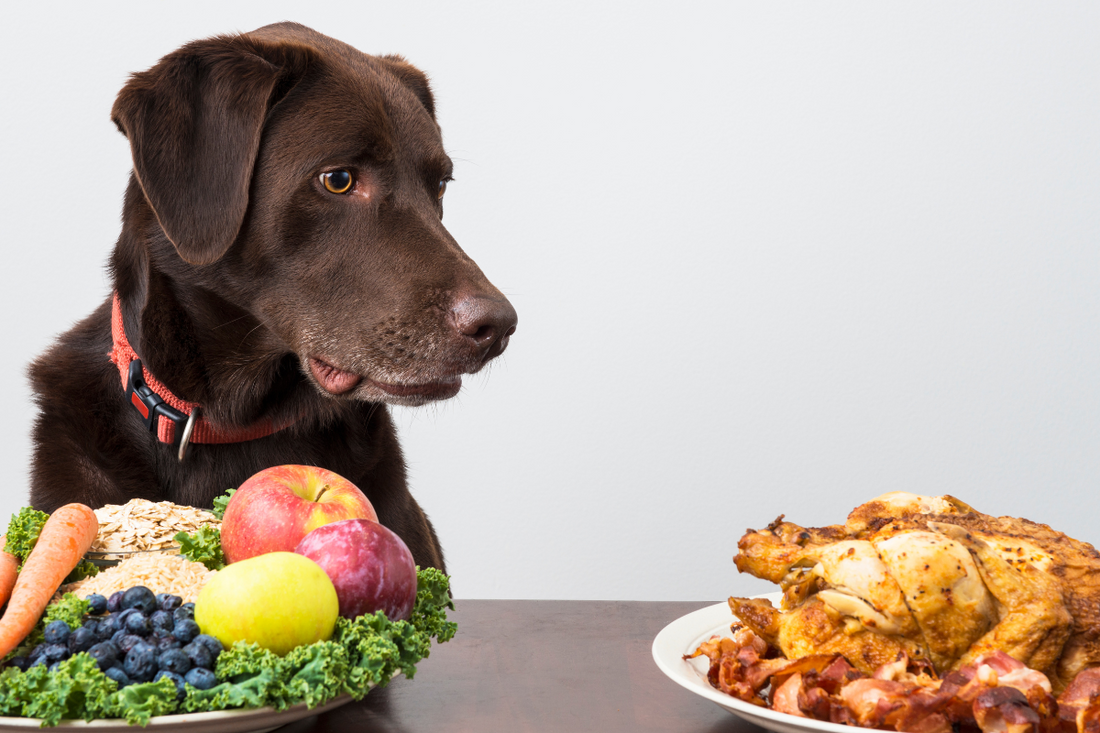
Beyond the Binary of Dog Food
In a recent episode of Dragons’ Den, investors Stephen Bartlett and Deborah Meaden backed Omni, a vegan dog food brand positioning itself at the crossroads of ethics, innovation, and sustainability.
It was a compelling pitch - tapping into growing cultural narratives around plant-based living, carbon footprints, and cruelty-free consumption.
But something was missing. Something deeper.
And it’s not just about Omni.
It’s about how we talk about food, life, death, and the beings we care for. It’s about how we decide what “good” means - without fully asking: good for who?
Survival Is Not Sovereignty
The Omni team claimed dogs can survive on plant proteins. And they’re right - dogs are adaptable. But survival isn’t the standard we use when we love someone. Survival isn’t thriving.
Dogs are facultative carnivores - biologically adapted to derive their most vital nutrients like taurine, B12, and carnitine from animal sources. While they can digest plants, they are not designed to rely on them.
Most vegan dog foods rely on ultra-processed isolates and synthetic additives to meet the bare minimum nutritional standards. This isn’t reverent feeding. It’s algorithmic nutrition.
The Starch Misunderstanding
One common myth used to justify plant-based feeding is that dogs can digest starch - so they must be omnivores.
But digestion is more than capacity. It’s about design.
Dogs have very little salivary amylase, the enzyme that breaks down starch in true omnivores like pigs and humans. Starch digestion happens late in their system, not in the mouth.
Adaptation does not equal optimization.
Dogs evolved to tolerate starch for survival. That doesn’t make it ideal. That doesn’t make it nourishing.
Nutrients Are Not Just Numbers
Plant-based diets often meet “nutrient profiles” - but through synthetic fortification, not whole food.
Studies (Kaur et al., 2022; Schimbator et al., 2020) show that plant proteins often lack key amino acids like lysine, methionine, and cysteine. These aren’t optional - they’re essential to muscle repair, immunity, and detoxification.
Nutrition is not just a list of what’s in the bowl. It’s a conversation between food and body.
Form matters. Bioavailability matters. Integrity matters.
Ultra-Processing Is Still Ultra-Processing
Whether it’s meat-based, plant-based, or insect-based - if your dog’s food comes in a sterile bag filled with isolates, binders, and synthetic vitamins, it’s a UPF (ultra-processed food).
Dr. Chris van Tulleken has shown how UPFs cause systemic inflammation, gut dysfunction, and chronic illness in humans. Dogs are showing similar symptoms:
- Obesity
- Allergies
- Autoimmune conditions
- Chronic inflammation
Swapping chicken meal for lentil protein doesn’t solve the problem.
It just changes the branding.
Insects: Ethical or Efficient?
Insect protein is marketed as a “sustainable” alternative. And yes, it requires fewer resources. But this too deserves deeper reflection:
- Bioavailability? Still poorly studied.
- Source material? Often depends on grain-based byproducts.
- Ethics? Do we value insect life less only because it’s easier to ignore?
When we feed insects because they feel less alive, are we feeding ethically - or just numbly?
Ethics Without Biology Becomes Ideology
Veganism is rooted in deep compassion. But when we impose our moral frameworks onto species with different biology, we may cause unintentional harm.
Are we feeding dogs based on their needs - or on our need to feel ethically clean?
When ethics override biology, we stop listening. And love without listening isn’t love - it’s projection.
Feeding as Systemic Choice
Every time we feed, we choose. Not just ingredients - but systems.
- Do we feed a living being - or a moral idea?
- Do we feed whole food - or industrially rearranged parts?
- Do we feed to honour life - or avoid death?
Lab-grown meat. Vegan kibble. Insect powder. They offer the illusion of ethical safety. But they don’t fix the root problem:
We’ve disconnected from death. And so, we’ve disconnected from nourishment.
Feeding with Reverence
To feed with reverence is to return to relationship.
It means:
- Choosing foods aligned with your dog’s species, not your personal philosophy.
- Sourcing ethically and regeneratively.
- Honouring the animal that became the meal.
- Giving thanks.
Feeding is not a nutritional transaction. It is a sacred exchange.
Dogs are not spreadsheets. They are kin. They are ancient beings in modern bodies. They trust us to choose not what’s easy, but what’s true.
Let’s feed them that way.
🎧 Go Deeper with Us
Listen to the podcast episode:
A Carnivore in a Compassionate World: Holding the Paradox with Grace
Can Dogs Really Thrive on a Vegan Diet? Download our free fact-check guide and get clarity you can trust here.
By Dr. Alexia Mellor & Stacey Renphrey, Co-Founders of Learn FETCH

1 comment
THANK YOU